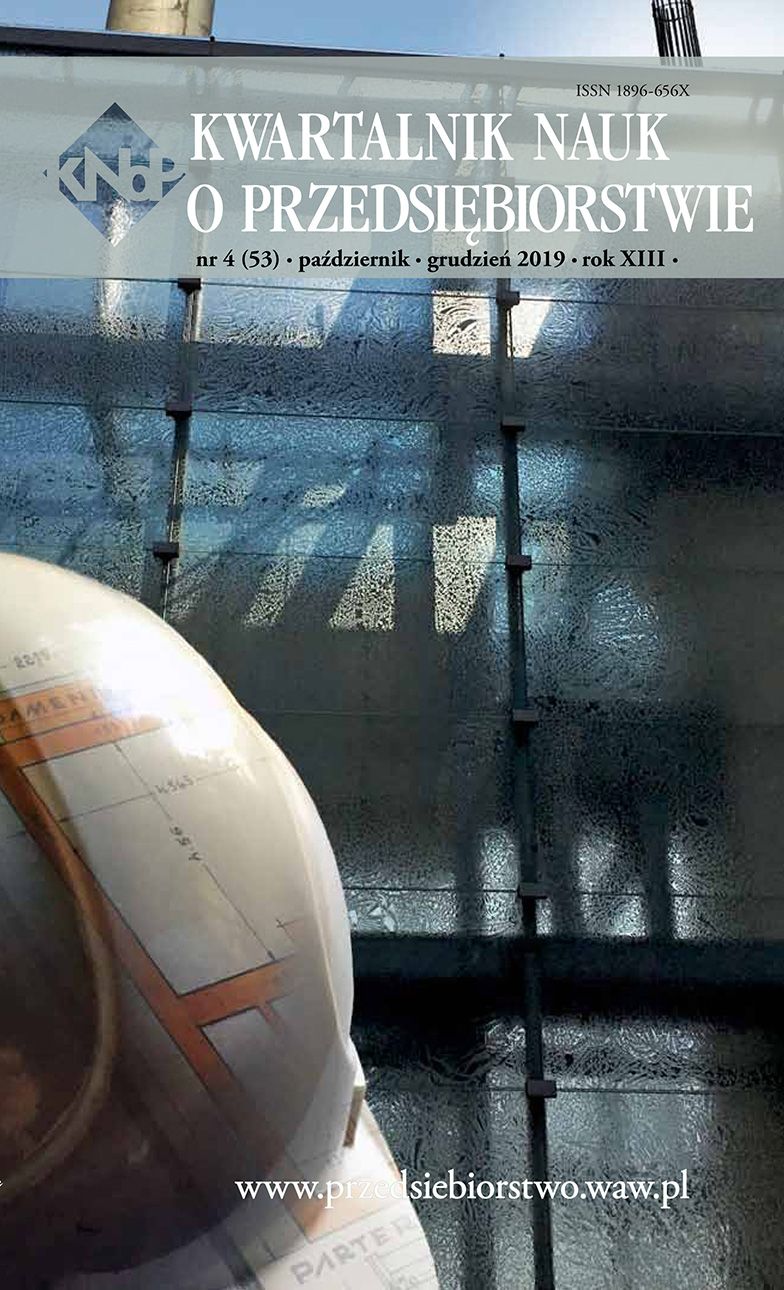Strategia zrównoważonego rozwoju na przykładzie protokołu lombardzkiego
Abstrakt
Celem artykułu jest omówienie przypadku nowatorskiej koncepcji protokołu lombardzkiego na rzecz zrównoważonego rozwoju. Powstała ona jako forma partnerstwa instytucji publicznych i prywatnych na rzecz realizacji celów zrównoważonego rozwoju będących wynikiem Agendy 2030. Lombardia jest wiodącym regionem europejskim, zajmuje drugie miejsce pod względem PKB. Region dąży do tego, aby być liderem w osiąganiu celów zrównoważonego rozwoju, dlatego Prezydent Lombardii stworzył nowatorski dokument – protokół lombardzki, który sygnowały 54 podmioty. Formuła tego dokumentu jest otwarta i mogą do niego przystępować kolejne podmioty, które zyskają aprobatę Prezydenta Lombardii. Protokół lombardzki jest przykładem budowania partnerstwa w regionie, by osiągnąć cele zrównoważonego rozwoju. W Lombardii planuje się wyjść poza tak rozumiane partnerstwo w dalszym etapie włączając w nie obywateli.
Full Text
Bibliografia
Amat J.M., Corona J.F. (2007), El protocolo familiar: la experiencia de una década, Ediciones Deusto, Barcelona.
Eurostat (2019), GDP per capita in 281 EU regions.
Glasbergen P. (2011), Understanding partnerships for sustainable development analytically: the ladder of partnership activity as a methodological tool, „Environmental Policy and Governance”, No. 21, p. 1-3.
Górka K., Thier A. (2018), Gospodarka obiegu zamkniętego zasobów naturalnych, „Aura”, nr 5, s. 3-6.
Hale T.N., Mauzerall D.L. (2004), Thinking globally and acting locally: can the Johannesburg partnerships coordinate action on sustainable development, “Environment and Development”, No 3, p. 220-239.
Hens L., Nath B. (2003), The Johannesburg Conference. Environment, “Development and Sustainability”, No. 5, p. 7-39.
Jastrzębska E. (2017), Gospodarka o obiegu zamkniętym – nowa idea czy stare podejście? Dobre praktyki społecznie odpowiedzialnych przedsiębiorstw, „Prace Naukowe Uniwersytetu Ekonomicznego we Wrocławiu”, nr 491, s. 220-234.
Kassenberg A. (2011), Globalne problemy ekologiczne i ich konsekwencje dla rozwoju gospodarczego, „Biuletyn PTE”, nr 2, s. 52.
Kuindersma W, Boonstra FG. (2010), The changing role of the state in Dutch regional partnerships, ”Environment and Planning C Government and Policy”, Vo. 28, p. 1045-1062.
Lipiec J. (2017), Ład przedsiębiorstwa rodzinnego. Doświadczenia światowe oraz zalecenia dla Polski, Oficyna Wydawnicza SGH, Warszawa.
Montemerlo D., Ward J.L. (2011), The family constitution: Agreements to secure and perpetuate your family and your business, New York, Palgrave Macmillan.
ONZ (2015), Przekształcamy nasz świat: Agenda na rzecz zrównoważonego rozwoju (2030).
Prandecki K. (2014), Teoretyczne podstawy zrównoważonej energetyki, „Studia Ekonomiczne”, nr 166, s. 238-248.
Real Decreto 171/2007 de 9 de febrero, por el que se regula la publicidad de los protocolos familiars, BOE núm. 65 de 16 de marzo.
Report of the Secretary-General (2019), Progress towards the Sustainable Development Goals, United Nations.
Report of the World Commission on Environment and Development (1987), Our Common Future.
Sachs J.D. (2015), Achieving the Sustainable Development Goals, ”Journal of International Business Ethics”, Vol. 2, p. 53-62.
Schouten G., Glasbergen P. (2011), Creating legitimacy in global private governance: the case of the round table on sustainable palm oil, “Ecological Economics”, Vol 11, p. 1891-1899.
Seth N. (2014), Enabling a sustainable future through the joint action of countries and communities: A revitalized global partnership for sustainable development, “UN Chronicle”, No. 4, p. 40-43.
Sobiech-Grabka K. (2019), Partnerstwo publiczno-prywatne jako metoda internalizacji odpowiedzialności międzypokoleniowej, CeDeWu, Warszawa.
Sobiecki R. (2019), Co przedsiębiorstwa mogą zrobić na rzecz zrównoważonego rozwoju? „Kwartalnik Nauk o Przedsiębiorstwie”, nr 3, s. 4-6.
Visseren-Hamakers I.J. (2013), Partnerships and Sustainable Development: the Lessons Learned from International Biodiversity Governance, “Environmental Policy and Governance”, nr 23, s. 145-160.
Wasilik K. (2014), Trendy w zachowaniach współczesnych konsumentów – konsumpcjonizm a konsumpcja zrównoważona, „Konsumpcja i Rozwój”, nr 6, s. 66-74.
Programma Regionale di Sviluppo della XI Legislatura, Regione Lombardia, Bollettino Ufficiale, Repubblica Italiana, Serie Ordinaria – Sabato 28 luglio 2018.
Lombardia: siglato protocollo per lo sviluppo sostenibile, presidente Fontana: risposte concrete alle esigenze dei cittadini, 18 settembre 2019, https://www.regione.lombardia.it/wps/portal/istituzionale/HP/lombardia-notizie/DettaglioNews/2019/09-settembre/16-22/lombardia-siglatoprotocollo-per-lo-sviluppo-sostenibile-fontana, (dostęp: 15.10.2019).
Autor
Autor (Autorzy) artykułu oświadcza, że przesłane opracowanie nie narusza praw autorskich osób trzecich. Wyraża zgodę na poddanie artykułu procedurze recenzji oraz dokonanie zmian redakcyjnych. Przenosi nieodpłatnie na Oficynę Wydawniczą SGH autorskie prawa majątkowe do utworu na polach eksploatacji wymienionych w art. 50 Ustawy z dnia 4 lutego 1994 r. o prawie autorskim i prawach pokrewnych – pod warunkiem, że praca została zaakceptowana do publikacji i opublikowana.
Oficyna Wydawnicza SGH posiada autorskie prawa majątkowe do wszystkich treści czasopisma. Zamieszczenie tekstu artykuły w repozytorium, na stronie domowej autora lub na innej stronie jest dozwolone o ile nie wiąże się z pozyskiwaniem korzyści majątkowych, a tekst wyposażony będzie w informacje źródłowe (w tym również tytuł, rok, numer i adres internetowy czasopisma).
Osoby zainteresowane komercyjnym wykorzystaniem zawartości czasopisma proszone są o kontakt z Redakcją.

